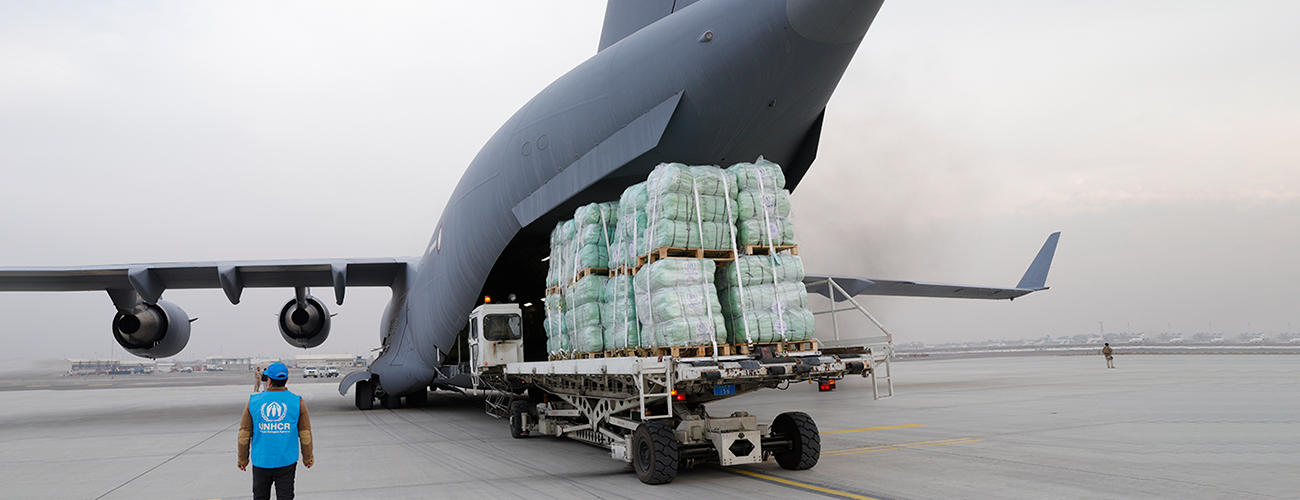A UNHCR supply associate oversees the arrival of the third planeload of emergency supplies for displaced and vulnerable Afghans at the Hamid Karzai International Airport in Kabul, Afghanistan, on December 20, 2021. (UNHCR/Tony Aseh)
Since the terrorist attacks of September 11th, 2001, the UN Security Council has developed two main streams of work related to counterterrorism: the sanctions regime established by Resolution 1267 and measures under Resolution 1373. However, these resolutions and related sanctions regimes have been criticized for failing to safeguard and facilitate impartial humanitarian action. In response, the council has progressively incorporated language that better considers international humanitarian law (IHL) and humanitarian principles. Despite these efforts, humanitarian organizations have continued to criticize counterterrorism resolutions and related sanctions regimes for inhibiting humanitarian activities.
This policy paper considers how the Security Council’s counterterrorism resolutions and related sanctions regimes can continue making progress to better protect humanitarian action. It begins by describing the council’s main streams of work on counterterrorism as well as their subsidiary organs. The second section discusses the impact of these counterterrorism measures on impartial humanitarian activities. The third section then reviews the incremental steps taken by the Security Council to incorporate language relevant to IHL and humanitarian affairs into these measures. The fourth section analyzes the four most recent counterterrorism-related resolutions adopted by the Security Council.
The paper concludes with policy recommendations for entities both within and outside of the UN to better safeguard humanitarian action within counterterrorism resolutions and related sanctions regimes:
For humanitarian organizations, relevant civil society groups and UN entities, and independent experts:
- Advocate to keep humanitarian action high on the Security Council agenda;
- Monitor the implementation of the humanitarian exception for Afghanistan; and
- Issue independent opinions on advisable forms of humanitarian carve-outs.
For the UN Security Council and other UN member states:
- Reinforce implementation and monitoring of provisions in Security Council resolutions pertaining to IHL and humanitarian action;
- Provide adequate resources to monitor the impact of UN counterterrorism measures and related sanctions on humanitarian action;
- Amend language in UN counterterrorism resolutions and related sanctions regimes to facilitate humanitarian action; and
- Empower elected members of the Security Council to be agents of change.
![]() Watch the related event “Sanctions, International Humanitarian Law, and Humanitarian Action: Contrast and Convergence” on YouTube>>
Watch the related event “Sanctions, International Humanitarian Law, and Humanitarian Action: Contrast and Convergence” on YouTube>>








